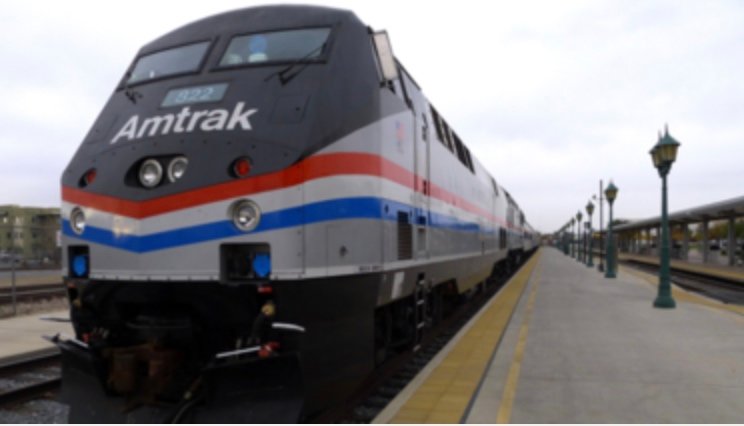WILSON/Passenger rail in question
Alabama's resistance to providing taxpayer monies for passenger rail service between Mobile and New Orleans could put the project on hold.
At a meeting of the Southern Rail Commission on December 6, commissioners discussed how to get Alabama leaders to agree to provide taxpayer money to get twice-daily passenger trains that could cost at least $65.9 million in capital outlays.
The service between Mobile and New Orleans would cost each state $3.045 million annually to operate and Mississippi and Louisiana have already committed to providing their shares. Alabama leaders, including Gov. Kay Ivey, are balking about providing taxpayer funds.
"When you start a new rail line, you have to grow ridership. The cost of operating the train the first two or three years is why we need a source of funding," said John Spain, an SRC commissioner from Louisiana.
Alabama's resistance could prove to be the project's undoing, as Federal Rail Administration grants for restoration and enhancement for rail infrastructure could be reduced or even scrapped for 2020.
John Robert Smith, former Meridian mayor and Transportation for America chairman, told the commission that there's no guarantee of an appropriation for 2020 Restoration and Enhancement grants.
Mississippi has already committed about $15 million in state taxpayer money to the project, with Louisiana adding $10 million. The commitments, according to Smith, would be due a year after the first trains began operation.
The Federal Rail Administration — under the Consolidated Rail Infrastructure and Safety Improvements Program (CRISI) — is providing up to $32,995,516 in taxpayer funds for improving crossings, bridges, sidings and other infrastructure along the route and adding a railroad station in Mobile.
These funds would also pay for preliminary engineering and federal environmental reviews needed for another project of the SRC, passenger service between Baton Rouge and New Orleans.
The federal grants that would be provided to enact Amtrak service are meant to get the service online. The first year, the grants would provide 80 percent of the operating costs, declining to 60 percent in the second year and 40 percent in the third.
The SRC says the rail service is the final piece of the puzzle for the Gulf Coast's post-Katrina future.
"One piece of the puzzle that is missing is a way to get people here, get them around. That's what the train is about and it can get people to the downtowns of the cities while connecting the bookends of our coast, Mobile and New Orleans."
A 2015 Amtrak study says that a twice-daily train between Mobile and New Orleans would draw 38,400 riders annually. Similar routes have existed from 1984 to 1985 and 1996 to 1997, but both ended because state taxpayer funds were no longer appropriated for that purpose.
A similar passenger train, the Hoosier Line, received $3 million annually from Indiana taxpayers to provide four days per week service between Indianapolis and Chicago. Indiana Gov. Eric Holcomb cut the money from his proposed two-year budget that was approved in April after ridership fell 18 percent from 33,930 rides in fiscal 2014 to 28,876 in fiscal 2018.
Already, other federal money is being earmarked for needed improvements on the existing tracks, which are owned by freight carrier CSX. Service between Mobile and New Orleans was ended in 2005 before Hurricane Katrina made landfall on the Gulf Coast.
Another CRISI grant of $8 million for rail infrastructure is going to the Port of Pascagoula, where it will help provide transportation for wood pellets from a soon-to-be built mill near Lucedale.
A 13-year-old earmark from the now late Sen. Thad Cochran of $846,000 would help Pascagoula build a platform for the potential service.
Commissioners also said there will be another Amtrak inspection train running along the Gulf Coast route within 24 months. The last one ran in 2016.
Commissioners also discussed a study done by Jacksonville State University concerning passenger rail service between Birmingham and Mobile. Operating such a train would cost between $12 million and $32 million to operate annually and would result in $23.6 million per year in additional tourism spending.
The study used similar methodology to a study by the University of Southern Mississippi that said that restoring passenger rail service could generate $282.58 million for the Magnolia State's economy.
The SRC is an Interstate Rail Compact created in 1982 by Congress and consists of commissioners appointed by governors from Alabama, Louisiana and Mississippi.
Steve Wilson is the investigative editor with Mississippi Center for Public Policy, a conservative Mississippi thinktank.



